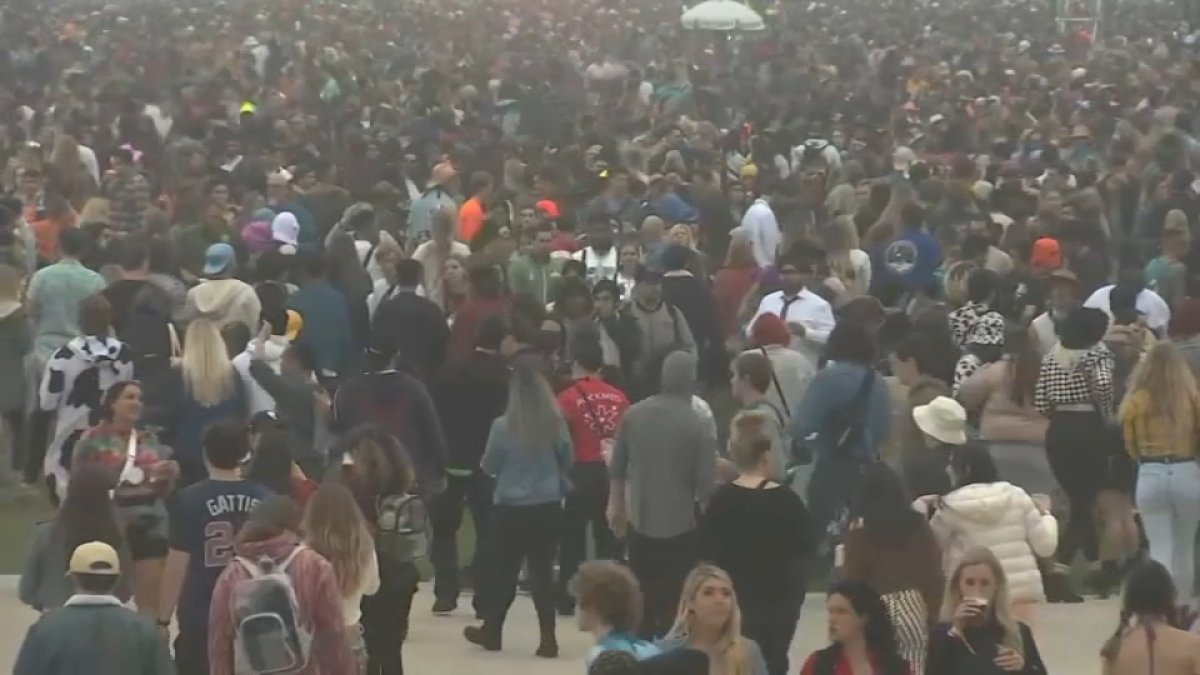
On the heels of San Francisco’s mayor declaring a local public health emergency over monkeypox, there’s concern that a big party weekend could end up spreading the virus even more. Sergio Quintana reports.
On the heels of San Francisco's mayor declaring a local public health emergency over monkeypox, there's concern that a big party this weekend could end up spreading the virus even more.
Some people are reconsidering their plans to attend Dore Alley (also known as Up Your Alley) this weekend, which has earned a reputation for being a smaller but more racy version of the Folsom Street Fair, and related dance parties because of the monkeypox outbreak.
"I think I'm just going to hang out in the neighborhood here and just listen to what's going on through friends," Larry Vovida of San Francisco said.
But others have come to the city just for Dore Alley.
"I think everyone mitigates their own risk," Daniel Blair of Los Angeles said. "Personally, I'm vaccinated and I had monkeypox."
He's hoping others take appropriate precautions.
"It's a painful experience," he said. "There's a lot of unknowns and a lot of questions the doctors couldn't answer. It's just scary."
Blair likely has years of immunity from another infection because of his recovery and vaccine, according to UCSF infectious disease specialist Dr. Peter Chin-Hong.
Stephan Ferris, a San Francisco-based entertainment attorney is recovering from the monkeypox virus. He told NBC Bay Area Friday that he is concerned that the virus could spread due to the weekend events happening in the city. Ferris said that the LGBTQ community is talking about how dangerous it could be.
“Monkeypox is going to skyrocket after this weekend's Dore Alley because people can’t stop having sex, not thinking that they themselves, is going to be out in large crowds, touching people and that is just as likely as transmission as having sex," he said.
Get a weekly recap of the latest San Francisco Bay Area housing news. Sign up for NBC Bay Area’s Housing Deconstructed newsletter.
For people who don't have either a vaccine or prior infection, there are three main ways monkeypox is spread. The most typical is through prolonged skin-to-sin exposure with an infected person. Infections have also happened through the exchange of bodily fluids. The least likely way is through exposure to soiled clothes or bedding from an infected person.
It is not airborne like COVID-19, so it it much more difficult to spread.
Chin-Hong said public events like next week's Outside Lands or this weekend's Dore Alley pose some risk, but they're not the biggest concern.
"I think probably the more risky things in both Outside Lands and Dore is the things that happen after the event or around the event in private spaces where people are intimate with each other," he said.
Local and state officials continue to press the federal government for more vaccines.
In an effort to get as many people vaccinated as possible, San Francisco providers have been canceling second shots so they can give those to other people.
"One dose will give you close to 90% protection - 85 to 90% protection - four days after you get the vaccine, and it lasts for a while," Chin Hong said.
For those concerned about not getting a second dose, Chin-Hong said it's a booster that can be given up to two years after the first shot.